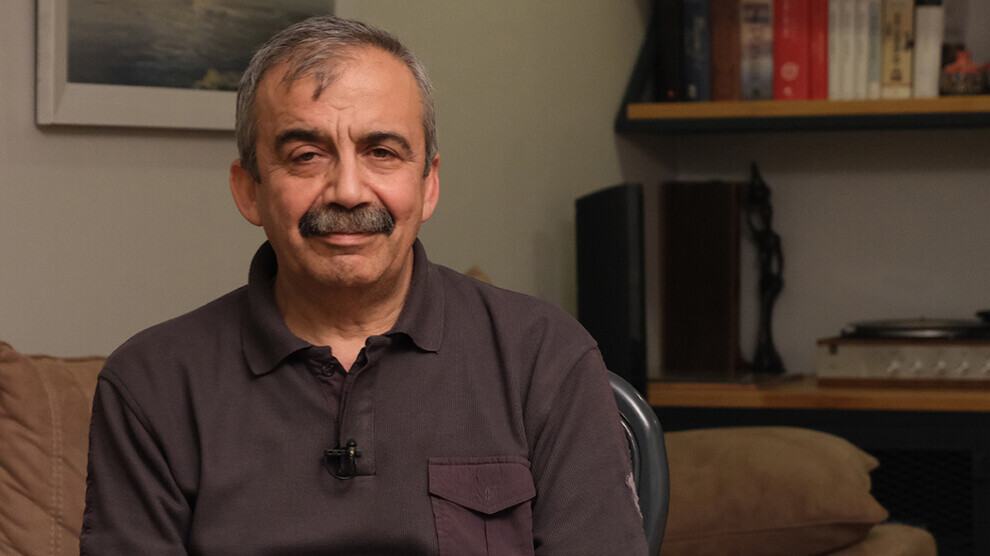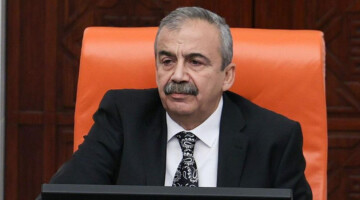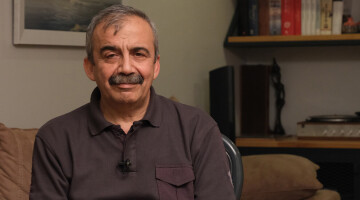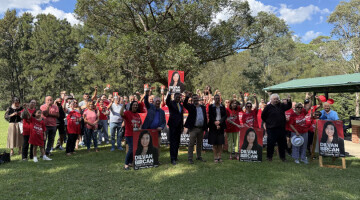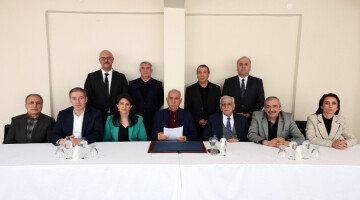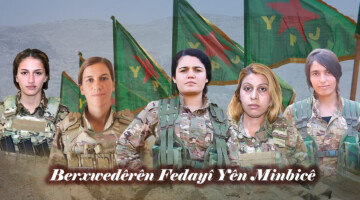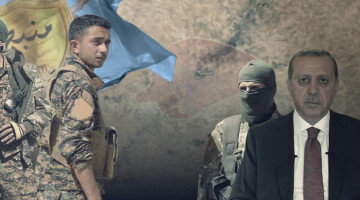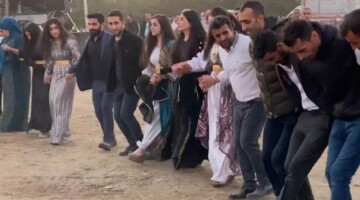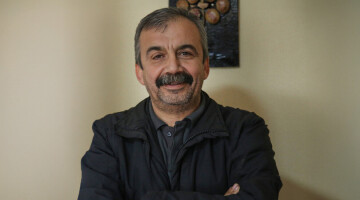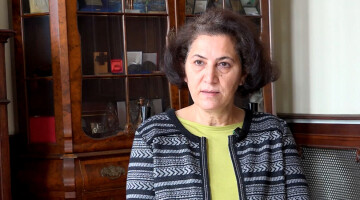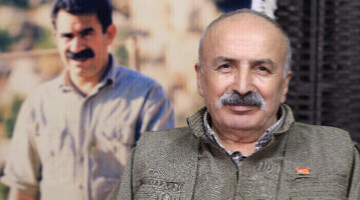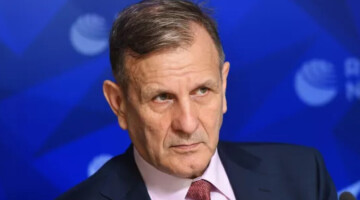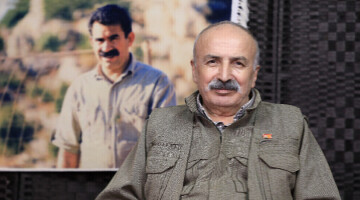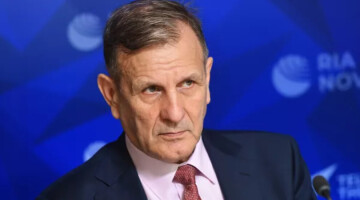Sırrı Süreyya Önder, Deputy Speaker of Parliament and member of the İmralı Delegation of the People's Equality and Democracy Party (DEM Party), passed away at Florence Nightingale Hospital, where he was receiving treatment. Önder had been fighting for his life in the hospital for 18 days.
Sırrı Süreyya Önder, who said that “Peace will inevitably come one day, and we will not give up the struggle until that day,” was one of the most important figures in the Kurdish political movement in Turkey, known for his resilient and pro-peace advocacy for a democratic society. He also stood out as a masterful representative of art and humor. Standing at the intersection of art and politics, Önder played key roles in peace processes and drew attention with his consistent, dialogue-oriented, and peace-loving stance throughout every period.
He learned about Islam and chose socialism
Born in Adıyaman in 1962, where almost everyone around him was Kurdish, Önder was the child of a Turkmen family. He lost his father when he was eight years old. Önder's father was one of the founders of the Adıyaman branch of the Workers' Party of Turkey (TİP). His mother's side of the family belonged to a different tradition, the Islamic pro-Nur sect. These two contrasting traditions shaped Önder's thoughts. In an interview, he said, “My father's side was socialist, my mother's side was pro-Nur; both were outside the system. This allowed me to get to know both, and learn about Islam, but in the end, I chose socialism,” summarizing the man who would become Sırrı Süreyya.
The 1980 coup and the years in prison
Önder became acquainted with leftist ideas in middle school and joined revolutionary and socialist groups in high school. In 1978, while still a high school student, he was imprisoned for protesting the Maraş Massacre.
After graduating from high school, he was admitted to the Faculty of Political Science at Ankara University. He continued to be involved in “revolutionary politics” in Ankara. He was 18 years old when the coup d'état of September 12, 1980, took place. After the coup, his political struggle became even more intense. The following year, he was imprisoned for his political activities. Serving a sentence in Mamak, Ulucanlar, and Haymana prisons, he endured torture during his seven-year imprisonment and participated in hunger strikes.
Truck driver, filmmaker, politician…
After many years in prison, Önder settled in Istanbul and worked in various jobs, including truck driving, before turning to screenwriting. Önder's interest in cinema and screenwriting began with the film “Duvar” (“Wall” by Yılmaz Güney). “I was inside that wall too; I realized I wasn't alone. Then I started writing,” said Önder, blending his personal story with collective memory in this way. Through his education, he learned to channel his anger into art, and thus created his first film, “Beynelmilel” (“International”)
Önder gained widespread attention with the film “Beynelmilel” (2006), and went on to work as a screenwriter, director, and actor in productions such as “O… Çocukları”, “Düğün Dernek” and “Yeraltı”.
In 2011, he entered politics and was elected as an MP for Istanbul with the Peace and Democracy Party (BDP) list. In 2013, he became one of the founding members of the Peoples' Democratic Party (HDP) and served as its deputy co-chair.
For Önder, the Kurdish issue was not merely a Kurdish issue. It embodied all the exploitation, historical oppression, tyranny, authoritarianism, exclusivism, marginalization, and inequality in this country.
He conveyed Öcalan’s messages to the public
Sırrı Süreyya Önder was one of the most important actors in the peace talks (resolution process) that took place between 2013 and 2015, serving as a member of the İmralı Delegation. Participating in meetings with the Kurdish leader Abdullah Öcalan on Imrali, he played a significant role in shaping the process and gaining public support for it.
In 2013, he read Öcalan’s call for “silence of weapons” at the Newroz celebration in Amed (Diyarbakır).
During the 2013 Gezi Park protests, he stood in front of construction machinery and used trees as cover, declaring, “I am also the representative of the trees,” becoming one of the symbolic figures of the resistance.
In the 2014 and 2015 Newroz celebrations, he once again conveyed Öcalan’s messages to the public.
He read out the 10-point Dolmabahçe Consensus text in 2015
During the ongoing “resolution process” talks, following a meeting between Deputy Prime Minister Yalçın Akdoğan and the HDP delegation on February 28, 2015, Önder read out the 10-point Dolmabahçe Consensus text, which was the most concrete step in the resolution process. After the HDP surpassed the electoral threshold on June 7, 2015, and the AKP lost its majority, the process stalled and ended with Erdoğan stating that he did not accept the Dolmabahçe Consensus.
While the Turkish state's attacks on Medya Defense Zones (guerrilla-held areas in northern Iraq) led to the resumption of clashes, in the political arena, pressure and arrests against HDP members increased with the aim of rendering the party inoperable. As a result of the crackdown, the immunity of several HDP members of parliament was lifted in 2016 and hundreds of people, including HDP MPs and politicians, were imprisoned. Among those sent to prison was Önder, one of the most important actors in the peace process.
He paid a price throughout his life but remained committed to peace
Arrested in 2016, Önder told reporters the following upon his arrival at Kandıra Prison: “Even though what is happening seems discouraging, better days are actually coming for the whole country. Every word we say and every effort we make is our honor.”
Önder was released in 2019 following a decision by the Constitutional Court that his right to freedom of expression had been violated.
The Court ruling emphasized that Önder was “an important actor in the resolution process, acted as spokesperson for the HDP delegation involved in the process, and that his activities at the time were aimed at ensuring the successful implementation of the process.”
When released, Önder said, “Normally, people should be happy at times like this, but part of us is still inside. We will only be able to feel joy when the country takes steps toward democracy and peace. We have said what we had to say, and we will always say it. Nothing can stop us from saying this, because we have spoken what we believe in.” He thus demonstrated that he would continue his struggle.
Önder paid a price throughout his life, but he never did anything he didn't believe in. He was a genuine human being, deeply knowledgeable about all peoples and cultures. He was consistent in his art and in his politics. He felt indebted to the land he lived on, and for this reason he never gave up politics or storytelling.
He continued his efforts for peace until his last breath
Despite the health issues he experienced after his release, Önder did not back down from the struggle and was elected as an Istanbul MP for the 28th term with the DEM Party in the 2023 general elections, continuing his efforts for peace and dialogue.
Following the statement made by MHP leader Devlet Bahçeli in Parliament on October 22, 2024, Sırrı Süreyya Önder once again took his place in the İmrali Delegation, for which he had already paid a price, saying, “Peace can only come through dialogue,” in reference to the negotiations between Abdullah Öcalan and the state.
Despite recent health problems, Önder continued to play his historic role in the peace process, ignoring his doctors' warnings to rest and slow down, saying, “This country needs peace; working for peace is the best therapy.”
Önder was taken to the hospital after suffering a heart attack on April 15 evening. According to a statement from the hospital, the 62-year-old politician was brought to the hospital without a pulse, and his circulation was restored through emergency measures. After being diagnosed with a tear in his aorta, Önder underwent emergency surgery, which lasted 12 hours, during which he received a bypass and an aorta graft.
While Sırrı Süreyya was being sedated in the hospital, Abdullah Öcalan sent a message on April 21. Delivered through Pervin Buldan, a member of the İmralı Delegation, and lawyer Özgür Erol, the message from Öcalan said the following:
“We have worked with Sırrı Süreyya Önder for 12 years. His great importance lies in the fact that, as an ideal resident of Adıyaman and a Turkmen, he represents the tradition of Baba İshak. He is someone who reflects the great efforts for peace to society and who can break down social prejudices in his own person. He has done this. He broke down prejudices in society, in Parliament, and on the streets.
He is able to transform emerging negativity into positivity before it deepens
What we refer to as Anatolian genes and culture is embodied in him. Peace is also about keeping Anatolian genes and the Turkmen tradition alive. Önder is such a person, and this is the true essence of Turkmen identity: the best identity for peace, the best culture for peace. It is the exact opposite of the mindset that says, “Let's insist on creating enemies and conducting politics in this manner.”
Önder's culture of coping with negativity and managing it is important; he is able to transform emerging negativity into positivity before it deepens. I see that everyone has visited the hospital where Önder is treated and expressed their loyalty to him. Loyalty requires putting his efforts for peace into practice. Once again, I extend my best wishes to him, his family, his loved ones, and the entire society. I hope he recovers as soon as possible and returns to us in his most enthusiastic and strongest form.
As a matter of his commitment to his struggle, Sırrı Süreyya Önder went down in history as one of the most important politicians who was able to act as a mediator during the most difficult times in Turkish politics, namely during the peace and dialogue processes. His role in the İmralı Delegation became a symbol of the period when Turkey came closest to peace. He became a language, a memory, and a conscience for both Turkey’s politics and the Kurdish people.

